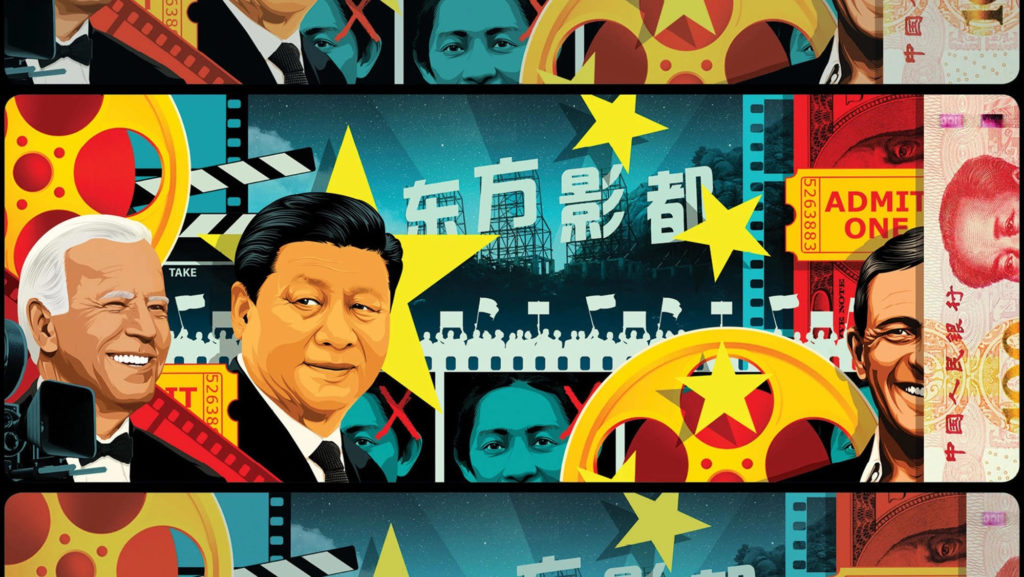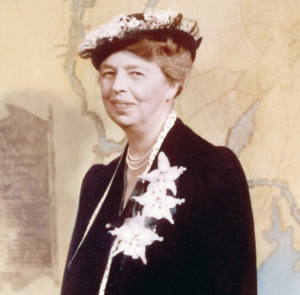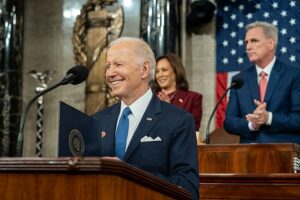China, Money Can’t Buy You Love
Why does China struggle to win hearts and minds abroad? Why is it still “uncool” in the international arena?

Image Credit: Taylor Callery
The American political scientist Joseph Nye once said: “A country may obtain the outcomes it wants in world politics because other countries–admiring its values, emulating its example, aspiring to its level of prosperity and openness–want to follow it.” These revolutionary ideas on soft power initially seemed far-fetched in the late 1980s, a period marked by heightened tensions between the Soviet Union and the West. However, it is now widely acknowledged that even before Nye and the fall of the Berlin Wall in 1989, American television and movies had already breached the Iron Curtain. And in today’s globalized world, soft power has evolved into the “new great game” for global influence. It is Disney’s vast catalog of movies showcasing America’s embrace of weirdness and diversity that led me here. It is K-pop boybands like BTS that have galvanized a generation of young people to rally behind the concept of soft masculinity and broaden the idea of manhood. It is anime-induced tourism that has become a driving force of Japan’s economic growth over the past two decades.
Indeed, it is also what China has been attempting to accomplish over the last decade. According to David Shambaugh of George Washington University, China has allocated $10 billion annually to soft power initiatives—surpassing the combined government spending of the US, UK, France, Germany, and Japan on such endeavors. Despite this substantial investment, China finds itself in the 27th place in the widely recognized Soft Power 30 Index.
Why does China struggle to win hearts and minds abroad? Why is it still “uncool” in the international arena?
In his book The Future of Power, Joseph Nye states that the three pillars of soft power are political values, foreign policies, and cultures. The Chinese Communist Party (CCP) knows that its political ideologies and values hold little allure for other countries or even its own citizens. Therefore, China’s soft-power strategy is fundamentally centered on strengthening the remaining two pillars.
Let’s begin by delving into China’s foreign policies. Over the years, China has undertaken extensive infrastructure projects, constructing roads, railways, and stadiums in nations across Asia, the Middle East, Africa, and Europe. Commonly known as the Belt and Road Initiative (BRI), these investments are intended to fortify China’s image as a benevolent and altruistic country keen to use its newfangled affluence for the good of the world.
Nonetheless, Nye sees these efforts as nothing more than thinly veiled manifestations of hard power, contending that this so-called “soft power” is accompanied by a distinctly forceful undertone. The sustained success of the United States in wielding soft power globally can be attributed, in part, to the central role of multilateralism in its foreign policy. By binding nations together through shared values and concerns and giving small powers a voice, other countries do not feel as threatened by the United States’ supremacy. According to Nye, “The multilateralism of American pre-eminence was a key to its longevity because it reduced the incentives for constructing countervailing alliances.” In contrast, rather than seeking to achieve influence by creating international networks, communicating compelling narratives, and upholding international rules and norms, the CCP utilizes the traditional “carrot-and-stick” strategy in its foreign policy.
The world has seen this time after time. We saw it when China imposed trade sanctions on Norway in 2010 for honoring the imprisoned dissident Liu Xiaobo with the Nobel Peace Prize. We saw it when Beijing threatened to ban exports of German cars to China in 2019 on “safety” grounds if Berlin excluded Chinese firm Huawei from building Germany’s 5G communications network. We saw it when China took a series of trade actions against the Australian export sector throughout 2020 after Australia sought an international inquiry into the origins of COVID-19. We saw it in October 2022 when Muslim-majority countries such as Qatar, United Arab Emirates, Indonesia, and Pakistan voted against a motion that the UN Human Rights Council in Geneva should hold a debate on China’s human rights violations in Xinjiang, since these countries are profiting from billions of dollars in Chinese investments through China’s BRI program. Above all else, China’s influence comes from its formidable economic prowess, fueled by a massive domestic market of 1.4 billion people and wielded through economic coercion. Nations align themselves with China not due to the country’s benign foreign policy but rather to avoid exclusion from its highly lucrative market.
In addition, China lags in soft power compared to its Western rivals and East Asian neighbors due to the restrictive political system that impedes the global dissemination of Chinese culture. This shortfall is not a result of a dearth of culture available for sharing and export; rather, it stems from the stringent censorship and propaganda mechanisms that filter any content deemed potentially detrimental to the party—a definition prone to arbitrariness. In contrast to the fall of the Berlin Wall, China’s Great Firewall stands as an impervious barrier. But while it effectively prevents the influx of undesirable content, it also obstructs the world from accessing and acquainting itself with contemporary Chinese culture. The colorful communities of scientists, artists, entrepreneurs, and celebrities remain absent from global internet forums, where presence is everything in the modern technology age.
When delving into the concept of soft power, Joseph Nye contended that its genesis wasn’t something governments could artificially create. In the case of America, a substantial portion of its soft power emanated from its civil society—“everything from universities and foundations to Hollywood and pop culture.” Conversely, the CCP exhibits a lack of trust in non-state actors and remains wary of the interconnected landscape of the internet, particularly its leaderless nature. The CCP is skeptical of a world where a new wave of political leaders could garner support through impetuous worldwide debates, and where celebrities could chime in on diverse topics and deftly engage in dialogue on business, politics, and social discourse. Such a dynamic world seems too volatile for their comfort.
Driven by an obsession with social stability, the CCP enforces orthodoxy through a social credit system. Fearing potential domestic volatility while aspiring to better China’s image abroad, the regime meticulously controls the narratives of its scientists, entrepreneurs, and artists. This control extends to the realm of pop culture, exemplified by state-endorsed pop songs praising CCP leaders and disparaging Western institutions. Take, for instance, the songwriter Wufeng Jifeng, whose song, “As You Wished,” lauds China’s first Premier Zhou Enlai. But such songs fail to resonate beyond China, as state-sponsored entertainment struggles to be perceived as cool, and rap about communism is far from becoming the next big global trend. This approach only serves to perpetuate the perception that China is out of touch with the broader international community.
Undoubtedly, the stifling grip of China’s censorship apparatus quashes the creative expression that would otherwise thrive in unfettered and free-thinking societies. This tightly controlled environment ensures that anything diverging from the CCP’s ideologies is swiftly disallowed in the media. Even seemingly innocuous elements of pop culture fashion, such as men’s earrings and tattoos, find themselves on the blacklist, deemed incompatible with the “core socialist values.” In 2014, President Xi Jinping issued a directive urging artists to “carry forward the banner of the Socialist core value system” and “use true-to-life images to tell people what they should affirm and praise, and what they must oppose and deny.” Although the statement did not explicitly discriminate between different art genres, its impact was most keenly felt in the rock scene. Cities like Beijing, renowned for their vibrant music scenes, saw some of their venues shuttered, highlighting the tangible consequences of such directives on artistic expression.
The CCP cannot limit the creative expression of artists and expect them to create good artwork. Among various forms of expression, Chinese literature has borne the brunt of censorship’s adverse impact. In the realm of contemporary literature, a common occurrence involves the need to revise original storylines and pivotal plot points that deviate from the party’s narrative, all in accordance with state regulations. This extensive rewriting process not only alters the essence of the story but also diminishes the potential brilliance of the plot. Consequently, when China exports such materials to other countries or even presents them to its domestic audience, the intended impact is lost.
This phenomenon is best illustrated by one of my all-time favorite novels, Grandmaster of Demonic Cultivation (魔道祖师), written by the Chinese author Mo Xiang Tong Xiu. The novel is a danmei, a genre of literature that features romantic relationships between male characters. However, when adapted into a live-action series by Tencent Penguin Pictures, a Chinese production company, the dynamic between the two male protagonists underwent a significant change. What was originally a portrayal of them as love interests transformed into a depiction of platonic “best friends” willing to go to great lengths for each other. This is a poignant example of altering and distorting elements essential to a work’s integrity to align with the party’s political ideology.
In essence, the primary impediment to the positive image sought by the CCP is China’s authoritarian political system. The party overlooks a crucial reality—irrespective of the nation’s economic strides, the pursuit of soft power remains a formidable challenge as long as the political framework hinders the cultivation of freedom, stifles ingenuity, and restricts direct interaction among its people and the global community. At the end of the day, China cannot simply buy love. It cannot merely throw money around and expect to see progress. Soft power needs to be earned.
“Water is the softest thing, yet it can penetrate mountains and earth. This shows clearly the principle of softness overcoming hardness.” I doubt Lao Tzu was able to conceptualize something like 21st-century international politics, diplomacy, or a globalized world when he wrote this, but his wisdom resonates with the understanding of the potency of soft power, for “what is soft is strong.” If China ever hopes to be cool, it needs to let the water run through and “cool” off the Great Firewall a bit. “That would mean loosening draconian restraints at home and reducing efforts to control opinion abroad. Only then could the country tap its enormous reserves of unrealized soft power,” as David Shambaugh put it.
Jay Sophalkalyan, a Cambodian writer, previously served as the Deputy Editor-in-Chief at JPI online magazine. Currently a graduate student at NYU’s XE: Experimental Humanities, his academic pursuits center around journalism and political theory/culture. His research delves into the profound influence of the digital era on journalism, exploring its pivotal role in shaping political culture and philosophy. Jay extends his expertise as a contributing writer for Quillette magazine, showcasing a commitment to thoughtful analysis and insightful commentary in the evolving landscape of societal discourse.






